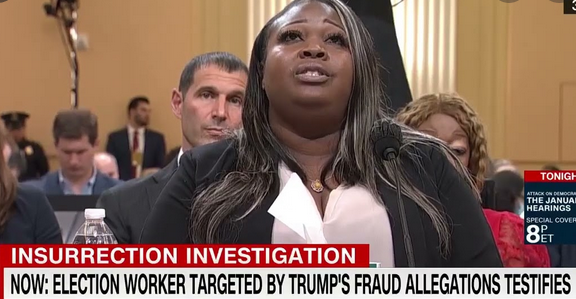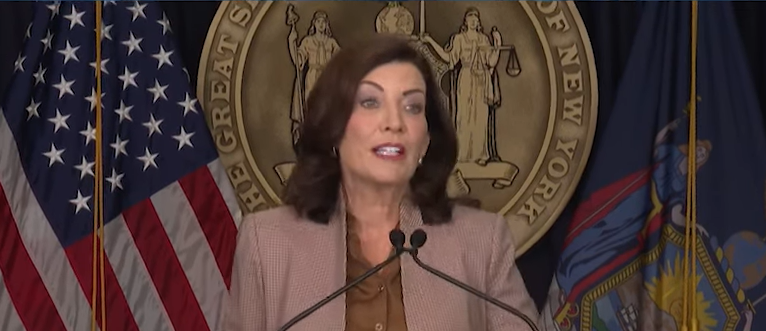Photos: YouTube
This week’s January 6 committee hearing provided more detail about the direct pressure President Trump and his allies put on state officials to help overturn the 2020 election.

Among others, Arizona House Speaker Rusty Bowers (R) recounted a campaign by Trump and Rudy Giuliani to get him to submit illegitimate pro-Trump electors on behalf of his state. Trump called Bowers soon after the election, and the pressure continued from November through the morning of January 6. Georgia Secretary of State Brad Raffensperger (R) and his deputy, Gabe Sterling, described a similar campaign to change the election results, including an hour-long call on January 2 in which Trump urged the secretary to “find” him the votes he needed to reverse his defeat.
All three men testified to the personal impact the pressure had on them and their loved ones: disturbing protests outside their homes, threats to their lives, and harassment of their colleagues, neighbors, and family members.
The stories of personal attacks were upsetting, including the racist abuse recounted by two Georgia poll workers, Wandrea “Shaye” Moss and Ruby Freeman. Yet Tuesday’s hearing also highlighted the resilience of American democracy and the heroism of our public servants. All three state officials who testified personally supported President Trump’s election but insisted on honoring the process and our democratic system. Like many other public servants around the country, they told the truth and refused to give in to enormous political and personal pressure to lie about the outcome.

Wandrea “Shaye” Moss and her mother Ruby Freeman
“I told them I did not want to be used as a pawn,” Bowers told Giuliani and Trump. “I think sometimes moments require you to stand up and just take the shots. You are doing your job,” Raffensperger said. “We followed the Constitution, and at the end of the day President Trump came up short, but I had to be faithful to the Constitution.”
Trump personally supported a primary challenge to Raffensperger as part of his campaign to oust the Republicans who told the truth about the 2020 election. But Raffensperger won his primary in May.
Unfortunately, many of the officials who stood up to the 2020 pressure campaign are leaving. In a recent Brennan Center survey of election officials, one in five said they plan to leave before the 2024 election, with a third citing “political leaders’ attacks on a system they know is fair and honest” as one of their top reasons for exiting.
In the same poll, nearly two-thirds of election officials reported being worried about political leaders interfering in how they do their jobs in future elections, with nearly one in five concerned about facing pressure to certify election results in favor of a specific candidate or party.
Will officials in 2024 stand up to such pressure with the same resolve state and local officials showed in 2020? That will be up to voters in 2022.
As the Washington Post and others have reported, dozens of candidates for state and local office have won their party’s nomination this year after denying or directly questioning the 2020 election results. This includes at least 10 candidates for governor and 3 for secretary of state — critical offices for running and certifying election results — in battleground states such as Pennsylvania and Nevada. It does not include states like Arizona and Wisconsin, which have election deniers on the ballot and have yet to hold their primaries.
The legal scholar Karl Llewellyn said, “Our government is not a government of laws, but one of laws through men.”
Donald Trump understands this. He and his allies are applying relentless pressure to those we rely on to implement our election laws.
Let’s hope enough people of integrity remain in the system to sustain it through the current era of election sabotage.







